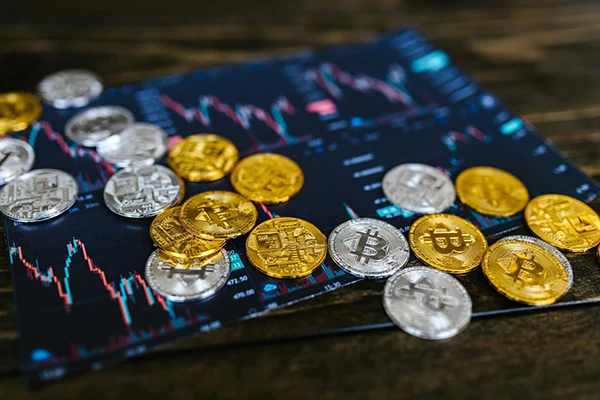
Do you also check your crypto app multiple times before even having breakfast? Don’t worry, you are not alone.
Getting updated on your portfolio’s ups and downs feels like riding a roller coaster – equal feelings of thrill and anxiety.
But see what studies have found:
“Investors who check their portfolios on a daily basis are more likely to feel like losing money about half the time – even when their investments are growing” ( Source: ETF )
Even 21Shares found out that – “When a small crypto allocation (consider 5% in Bitcoin) adds to a common portfolio (60% U.S. equities / 40% U.S bonds), the resulting most efficient schedule was annually, not even monthly or weekly”
This suggests that there is no need to check or rebalance crypto holdings continuously – it will just exhaust you emotionally.
You might ask – Then how often should we really check our crypto portfolio? The answer will depend on your goals and your risk-taking ability.
Let’s dive deeper to explore the considerable answer –
There is a reason why your brain asks you to check your portfolio every few minutes. It is a human tendency to get instant updates about every rise and fall of 2%.
Your brain releases dopamine every time you see a rise in your portfolio – the same chemical that is released while scrolling reels.
Why crypto urges more is that it’s a 24/7 market – it doesn’t take weekends off like stocks. When enabled with telegram groups and price alerts, it becomes the best combination for obsession.
“Your check-ins should be matching your investment plans – not your emotions”
In case you are a day trader – quick updates become part of your active trader role, as short-term opportunities and quick exits need instant updates. But if you are a long-term investor, frequent monitoring will cause more harm than good.
It is the same as “a farmer doesn’t need to dig up seeds daily to check if they are growing. They just have to water on time and trust the process while keeping patience”.
The same applies to investing – growth takes time, not continuous inspection.
Overchecking leads to overreacting – when prices rise, you feel like getting a new crypto, when they fall, fear kicks in.
And a surprising myth is that people think that checking more will lead to getting more. But the research says something else – “investors who monitor their portfolios too often are more likely to underperform than those who review them less”.
Overchecking ends up resulting in a stress exercise rather than building a desired portfolio.
A healthy routine will depend more on your investment and your future plans.
If still struggling, start taking small initiatives:
Consider crypto checking like a dentist visit – scheduled and when required, not impulsive.
When to Check More Often
Not in every situation, frequent checking can turn out to be a losing deal. In some cases, frequent checking is beneficial and justified:
| 1. | During huge market shifts (Market Crash). |
| 2. | While chasing tax deadlines – to record profit and loss. |
| 3. | While rebalancing and adjusting your asset allocations. |
Note: In case your platforms notify you related to a data breach, taking immediate action on your portfolio makes sense. But in other cases, staying calm and consistent should be a standard.
In the crypto world, patience can reward you more than expected. Continuous tracking may blur your long-term goal and put you in the game of chasing short-term noise.
Consider Warren Buffett’s principle – “The stock market is a place that transfers money from the impatient to the patient”. The same applies to the crypto.
Analysis by HODL FM shows that “holding a bitcoin for a short time (Less than 3 years) attracts much higher chances of loss, due to volatility”.
Instead of chasing the daily price swings, chase long-term metrics.
Investing in crypto shouldn’t be a full-time workout. Frequent divings into your portfolio will not make you a smart investor – but will make you more anxious.
Even in crypto, tortoise wins! Slow, steady and planned efforts end up winning – because they spend more time building wealth rather than checking it.
The smart move is to plan things at once and stick to those goals, while avoiding daily noise.
Bitcoin is a part of crypto, so yes, both are almost the same.
Checking monthly, and weekly in some cases, is perfect for the long term.
As it just leaves you anxious with almost no profit.
Yes, relying on other apps to track a portfolio is not a bad practice.
